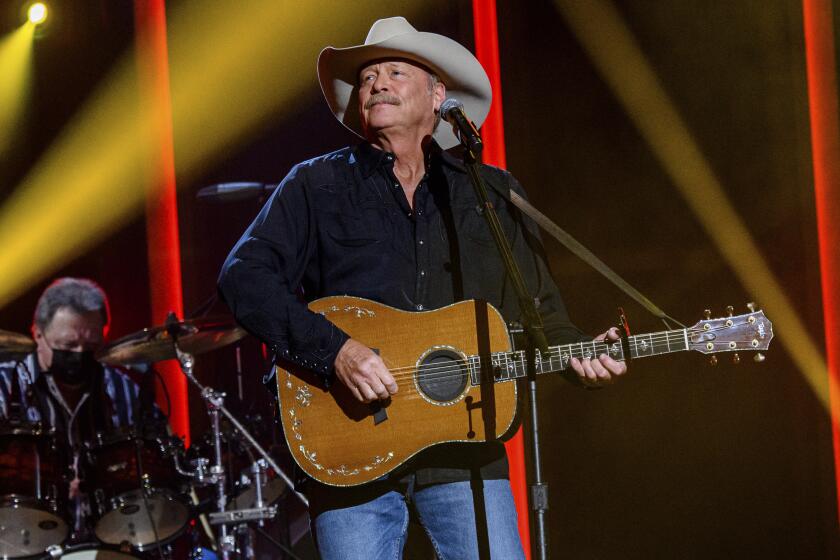Apolitical Notes Sounded at Freedomfest
- Share via
It wasn’t all politics as usual at Freedomfest, Saturday’s all-star concert in London celebrating the 70th birthday of Nelson Mandela. Watching the six-hour telecast (carried by the Fox network, KTTV Channel 11 in Los Angeles), one couldn’t help but wonder what the long-imprisoned leader of South Africa’s outlawed African National Congress would think of some of the more apolitical performances.
Among the less activist moments during the daylong tribute to Mandela and the anti-apartheid movement: British pop star George Michael, Mr. Sex himself, singing Marvin Gaye’s “Sexual Healing.”
But Mandela might not find the performance nearly as irrelevant or irreverent as some viewers undoubtedly did--not when you consider the fact that Michael recently became the first white solo artist to top America’s black music charts, which must say something about how far American racial attitudes have come since 1963, the last year Mandela enjoyed freedom.
Many of the other 30 or so acts appearing at Wembley Stadium made their commitment to the matter at hand more explicit. Rock-benefit veterans Simple Minds, Peter Gabriel, Little Steven and Jackson Browne all performed songs either in direct tribute to Mandela or concerned with South African racism. The most famous: Gabriel’s “Biko” and Little Steven’s “Sun City.”
The moment that might well have pleased Mandela most, however, was not about South Africa. It was “Across the Lines,” a song from up-and-coming American singer Tracy Chapman, the only artist to sing without a band and the only artist on the telecast to sing convincingly and movingly of racism at home .
Though much of the finger-pointing that went on in song occasionally during the day--from the anti-Botha sentiments in “Sun City” to the anti-Pinochet strains of Sting’s compelling, Chilean-themed “They Dance Alone”--was no doubt well-justified, Chapman’s song explores the vicious circle of racism and lets no one escape blame, the listener implicitly included. South Africa’s condition may be more critical, but Chapman was offering first-hand reporting from her field.
Considering the anti-apartheid theme, it was fairly predictable that Freedomfest would offer a far better representation of black artists--most of them American--than such past cause-centered concerts as Live Aid. And it was no more surprising that these acts were responsible for most of the televised highlights (George Michael notwithstanding).
Besides Chapman, these included the tuxedoed Rev. Al Green’s dip back into his secular repertoire with “Let’s Stay Together”; Stevie Wonder’s unrehearsed birthday-greeting rendition of “I Just Called to Say I Love You”; two gospel numbers, one a group-sing led by Natalie Cole and Ashford & Simpson, the other a soaring duet between Whitney Houston and her mother, Cissy, and the ever-perfect Houston’s slick but stunning professionalism on “Love Will Save the Day.”
Concluding the day was a rare appearance by Dire Straits, made even rarer by the presence of Eric Clapton joining Mark Knopfler on guitar (and one lead vocal) for Straits’ characteristically lengthy versions of exquisitely beautiful songs. The set provided a subdued ending to a birthday party that most of the world--excluding South Africa, and Mandela’s cell, of course--had the opportunity to partake in.
More to Read
The biggest entertainment stories
Get our big stories about Hollywood, film, television, music, arts, culture and more right in your inbox as soon as they publish.
You may occasionally receive promotional content from the Los Angeles Times.










